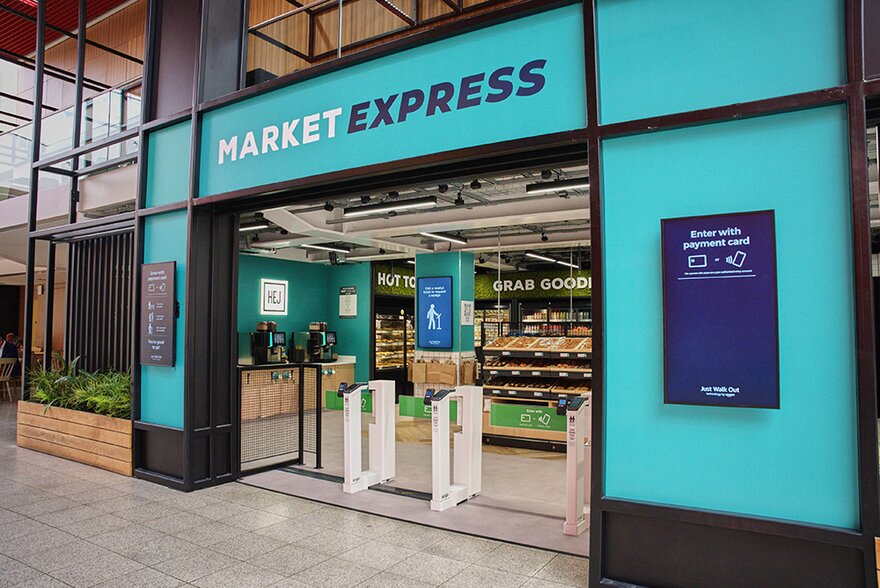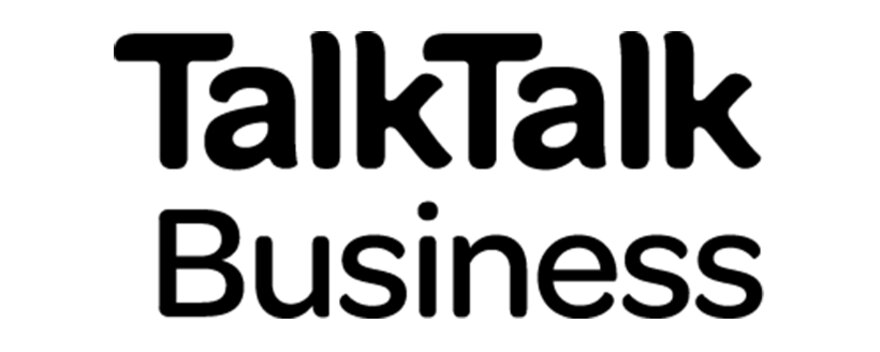Panellists at The Caterer's Automation Webinar, sponsored by TalkTalk Business, heard how technology can unlock efficiency and shape the future of hos
It's impossible to ignore the rise of artificial intelligence as an increasingly mainstream technology – and the fear these tools are going to displace a lot of jobs. Against this backdrop, could places such as the Henn-Na hotel in Japan – which is staffed primarily by multi-lingual robots including a dinosaur receptionist – eventually become commonplace?
Jane Pendlebury, chief executive of the Hospitality Professionals Association (HOSPA), believes the uptake of automation in hospitality is likely to take on a more subtle role and complement, rather than replace, existing staff.
"I've seen the robots that deliver room service and I think they're quite interesting, and Yotel has robots to sort luggage," she says.
"I probably approve of that more than delivering room service because the art of hospitality is so important: the smile, the hello, the welcome. And if you're delivering room service [the customer] may ask where is the hairdryer? Or could they have a different pillow? And a robot is not going to be able to deal with that.
"There are some functions, certainly back of house [where automation will be beneficial] but we mustn't lose sight of the business that we're in as it's very people-oriented."
For Pendlebury, technologies such as robotic process automation (RPA) software have huge potential to free up front line staff from "boring" repetitive tasks. This is already enabling a range of tools, such as chatbots that can answer basic queries, automated management of room reservations, or procurement processes.
"It's getting rid of the real churn: ticking one list off and checking it against something else. A lot of that should make jobs more interesting," she says. Gabriel Dooris, head of enterprise new business at TalkTalk Business, agrees there is enormous potential for innovation in the sector, but points out connectivity is the necessary foundation for everything else: "We liken it to buying a Ferrari with a Fiat engine in it. You will never get the potential of what you're trying to do if you don't have the right infrastructure in place."
He cites a recent example of a large theatre company that needed to overhaul its Wi-Fi in part because it was losing contracts due to poor connectivity on-site. "They started off with an initial budget of less than six figures, and ended up spending seven figures because of the return on investment they'd realised… They are now selling conferences on the basis of ‘look at the connectivity we've got' because it's one of the requirements that delegates need."
That infrastructure is crucial to enabling a whole range of operations. "If you look at things like restaurants, they've brought in Deliveroo and Just Eat – and from a customer experience, if you try [and place an order] once or twice and they don't pick it up and deliver, you probably won't give them another shot – you'll just give [your business] to somebody else. So, it's really important that you don't have all these fantastic things set up that fail because you don't see the importance of the connectivity."
Innovation opportunities in automated technology
Rak Kalidas, managing director at Built by Levy, the sports and entertainment arm of the Compass Group, has designed a number of innovative services. These include tap and go bars at stadiums, and a frictionless check out free store at London's Excel centre, powered by Amazon's Just Walk Out technology.
"The consumer journey is really simple: you tap your card or phone at the gate for entry, the gate opens, you go in and you have a shopping experience in the stadia – you pick up your pie or whatever the products are you want – and you walk out," he says. The frictionless store process is rarely inaccurate, he says. "It's done through computer vision. So when you come in, it creates a key identifier for that person and then it tracks them within the store in terms of what they have picked up and put down."
But the success of these projects is down to more than mere novelty. "The main objective for us is realising what some of the pain points are for consumers. [For example] the pain point for football is getting served quickly, so that's where we started exploring how technology could make that experience quicker, faster and more efficient. And from an experience point of view, I would say it's absolutely brilliant."
He points out this is not about replacing staff, but changing the service model. "From an operational perspective, we're trying to take that pain away [from staff], so they're not under pressure and they're not having to serve quickly. These stores don't eliminate jobs: we still need people to restock the shelves, pour the beer, make sure the food is replenished."
Not all automation innovations are so obvious to the customer. Darren Sweetland, managing director of Mollie's, says during the pandemic the hotel and restaurants chain rethought its ecosystem of technology: "A lot of the technology we've implemented has been in the things you don't see – that perhaps the guests take for granted but the staff and colleagues in the business do see."
One example was its recent implementation of a revenue management system that provides real-time automated rate update suggestions.
"What we've seen in the operational world is a lot of complexity that can be quite easily resolved by using good technology. There's an awful lot of things that we do on a day-to-day basis that we shouldn't need to do because technology can do it far better and more accurately," he says. "That gives more time back for people to spend on the things that are most valuable."
One example is staff being able to manage rotas. "They can see shifts in advance using their phone. If they want to spot their schedule with a friend, they can do by the click of a button before they've even arrived at work. They know their duties. They know perhaps what rooms they're looking at today, or whatever it might be."
Making technology work
Thinking strategically is key to making the most of investments, and customers need to consider what they want to achieve over the space of the next five years, says TalkTalk's Dooris. "We ultimately develop the connectivity, we don't get involved in the automation. What we do is try to understand effectively what are you trying to achieve and then we work backwards with the customer."
Kalidas agrees and says the first question to ask is what problem are you trying to solve? "Don't put in technology for technology's sake, because it just won't work. What's the business case? What are the pain points? Whether it's from a consumer perspective, business perspective or an operational perspective – it's starting with the why."
Pendlebury echoes those sentiments and says making sure there is a need is key. "And if there isn't one there, don't let a salesperson come to the door and tell you that you need it," she says.
She points out Covid prompted a lot of businesses to try new technologies, but many have since reassessed their use. "There was a lot introduced during the pandemic [such as] at-table ordering, some of which has stayed and some of which hasn't. I often use the example of Red Carnation Hotels, where they put their wine list on an app, whereas they used to just present it in a very lovely leather-bound book. And I think their solution is now choice – they have both. So, whoever wants to go in and still use the app, it's there, but if it's a more traditional person who enjoys the theatre of being presented by the wine list and looking through it [that is an option too]. It comes around to guest choice."
Clearly, for a technology project to work, the business has to need it and the customer has to want it.
Future disruptions
Anticipating the next disruptive technology to shake up the industry could be anyone's guess. But the panellists are well placed to give their best predictions for what might be in store for the sector over the next decade.
Backend automation
"I think it's going to be RPA – robotic process automation," says HOSPA's Pendlebury. "But hopefully in the back-end of systems, like in revenue management. I'm seeing increased use of things like that because of its accuracy and its ability to work 24/7."
Better connectivity
"Bandwidth is just going up," says TalkTalk's Dooris. "Getting rid of copper [will enable us] to become a nation where we have very stable networks. But from a customer experience point of view, drones and things that are being developed on the pavement, such as robots that can drive along with shopping."
Checkout-free stores
"I think there's going to be some major disruption around how [checkout-free stores] get implemented in different settings and environments within hospitality," says Rak Kalidas, from Built by Levy. "The pace of development is going to be really interesting to watch and to see the evolution of what this is going to look like."
Drone deliveries
"I hope that it's drones – I hope we can get food and things delivered when we have shortages that can come by drones," says Darren Sweetland from Mollies. "And perhaps even take me to work!"
About TalkTalk Business
TalkTalk Business is the UK's leading connectivity and network solutions provider. Right now, TalkTalk Business consultants are helping hospitality businesses of all sizes embrace AI-driven, data-fuelled futures.
From voice control to contactless ordering; from personalised guest experiences to automated inventory management – if it's where hospitality is headed, TalkTalk Business is leading the charge.TalkTalk Business's network is the largest and most reliable in the UK. It offers the high-bandwidth connectivity that modern hospitality businesses need to make the most of their data – keeping operations running smoothly and customers coming back.
Best of all, TalkTalk Business's products and services are backed by industry-leading SLAs and renowned customer service – earning TalkTalk Business a coveted 4.7-star "Excellent" rating on Trustpilot.






